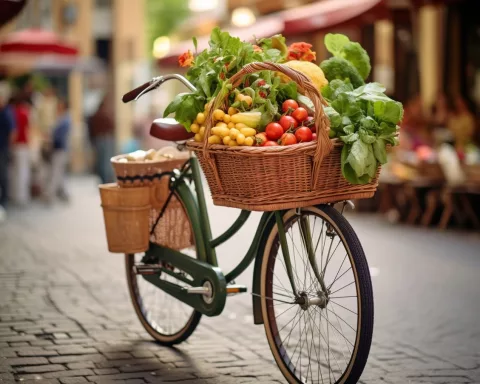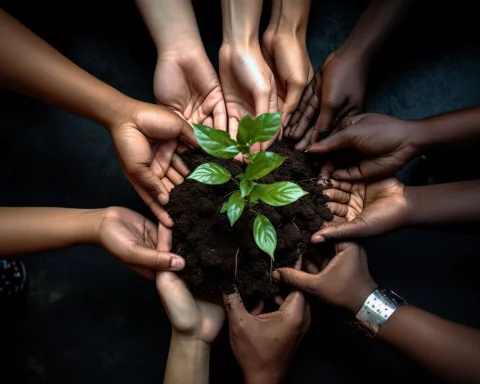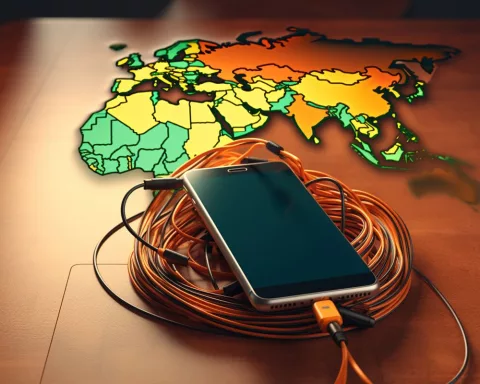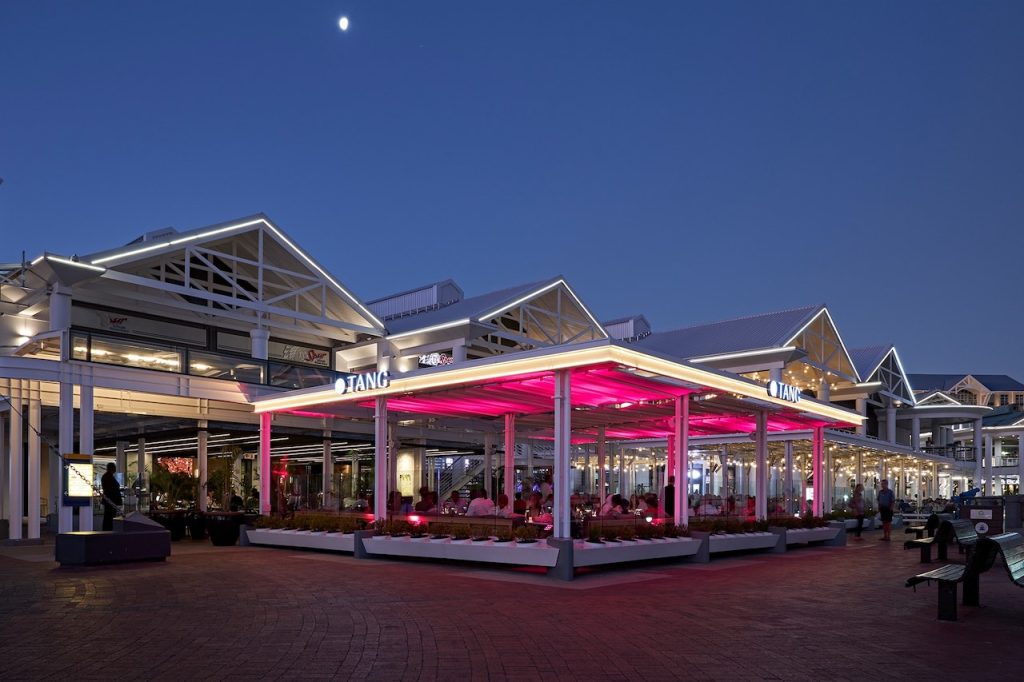Cape Town News
The top ten highestearning athletes of 2023 have achieved great financial and athletic success through skillful business moves and sporting ability. From Neymar to Ronaldo, these athletes have amassed significant wealth, with Ronaldo claiming the top spot as the highestpaid athlete of the year. Despite legal controversies and security provisions, these athletes have left a lasting mark on the sports industry, showcasing the intersection of business savvy and athletic excellence.
Michelle Obama and other influential figures, including Melinda French Gates and Amal Clooney, gathered in Cape Town to advocate for the empowerment of young girls and the termination of child marriage. The event highlighted the importance of financial assistance in helping to achieve this goal. Michelle Obama, wearing a stunning dress by South African designer Laduma Ngxokolo, used her platform to call for a fairer future for girls worldwide. The event showcased the power of collective efforts in creating a more just society.
DemiLeigh Tebow was a South African woman who aspired to become a Miss South Africa and lead her country. She won the Miss Universe title in 2017 and later married former NFL quarterback Tim Tebow. Despite relocating to the United States, she remains connected to her homeland and continues to inspire others through her modeling, philanthropy, and entrepreneurship. Her legacy lives on as Bryoni Govender represents South Africa in this year’s Miss Universe pageant.
Michelle Obama’s recent fashion choice, a dress from South African brand Maxhosa Africa, has sparked a storm on social media, with users applauding her for promoting African culture with a contemporary twist. The dress represents the rise of South African fashion on the international stage and showcases designer Laduma Ngxokolo’s fusion of traditional Xhosa beadwork designs and modern flair. Michelle’s wardrobe decisions continue to serve as a medium for cultural exchange and celebration, turning each of her public appearances into a highlyanticipated fashion spectacle.
Bafana Bafana, the South African football team, begins their journey to the 2026 FIFA World Cup with a home game against Benin. Led by Evidence Makgopa, they will compete with teams from countries like Lesotho, Nigeria, Rwanda, and Zimbabwe in group C games. The match will be broadcasted live on SABC1, and Hugo Broos, the head coach of Bafana Bafana, holds a measured optimism regarding their adventure.
South Africa’s Bafana Bafana emerged victorious against Benin in a thrilling 2026 FIFA World Cup qualification match held in the Moses Mabhida Stadium. The game was a spectacular display of football skills and a testament to the unwavering spirit of the players and their supporters. Percy Tau’s early goal gave South Africa an early lead, which they maintained throughout the match, resulting in a 10 win. The game was a riveting spectacle that left an unforgettable impression on the field and in the hearts of football fans worldwide.
Katlego Otladisa’s move to Orlando Pirates has stunned the South African soccer community, highlighting the unpredictability of the sport. After impressing with Marumo Gallants, Otladisa’s signature became hot property in the transfer market, but his switch to Orlando Pirates came as a surprise to many. Otladisa hopes to contribute to the team’s winning mentality, as the Pirates aim to clinch the league title this season. The transfer offers insights into the career paths of players and the strategies employed by clubs in the everchanging world of soccer.
Egyptian football superstar Mohamed Salah showed exceptional skill and agility during a World Cup qualifier match against Djibouti, scoring all four goals in a 60 victory. Salah’s remarkable form pushed his total career goals for Egypt to 52. In other matches, Algeria achieved a 31 victory over Somalia, while Kenya suffered a 21 loss to Gabon in Group F. The qualifiers highlighted the unpredictable nature of football and the aweinspiring talent of Salah.
Kaizer Chiefs Football Club, a legendary team in South African football, is currently enduring a challenging phase marked by an eightyear trophy drought. However, Kaizer Motaung Jnr, the club’s Sporting Director, promises a revival to preserve the legacy of all Kaizer Chiefs legends. The team’s potential resurgence is armed with a fresh sense of optimism, and the recent Soweto Derby drew the attention of FIFA President Gianni Infantino, highlighting the team’s fighting spirit and the dynamic energy of the stadium and the city on game day.
Cassie Ventura and Sean “Diddy” Combs have reportedly settled Ventura’s $30 million lawsuit accusing Combs of physical and sexual abuse. The lawsuit caused a stir in the entertainment industry but was resolved quickly. Both parties issued statements indicating a desire for reconciliation, but the specifics of the settlement remain unclear. The case highlights the complexities of power dynamics in the industry and has sparked a conversation about abuse and justice.
Kaizer Chiefs, a prominent South African football club, surprised the football community by reportedly extending the contract of goalkeeper Bruce Bvuma, despite his absence from the field and underwhelming performance in his past games. This decision has created buzz among analysts and fans alike, with many waiting for an official announcement. The recent match between Kaizer Chiefs and Orlando Pirates, attended by FIFA President Gianni Infantino, was described as an “unforgettable experience” that showcased the passion and enthusiasm in South African football. The future of Kaizer Chiefs and their team dynamics, with the inclusion of promising talents like Bontle Molefe, is eagerly awaited.
Bryoni Govender, the first runnerup for Miss Universe from South Africa, captivated audiences with a national costume that masterfully wove together elements from African and Indian cultures. The creative genius behind Bryoni Govender’s attire is bridal designer Casey Jeanne, who ventured into pageant fashion, crafting a gown that is a modern reinterpretation of the traditional sari, adorned with intricate Zulu and Ndebele beadwork forming the signature geometric patterns.
The relationship between Prince Harry and Prince William has deteriorated significantly in recent years, with Prince Harry’s memoir “Spare” being a significant factor in the rift. Royal biographer Omid Scobie suggests that Harry’s memoir was a cry for dialogue, but it has only deepened the divide between the brothers. Scobie’s upcoming book “Endgame” delves deeper into the royal crisis and highlights the fear of the threat Harry may pose to the monarchy, with the onceunited front between the brothers now a royal standoff that appears unbridgeable.
Deputy President Paul Mashatile is scheduled to attend the 3rd National Men’s Parliament and inaugurate the Takuwani Riime Men’s Movement Programme of Action for 20232025. The event, set for 19th November 2023, represents a monumental stride towards social transformation. This significant development is directed towards amplifying community safety, population health, and socioeconomic growth.
In 2023, the vibrant city of Cape Town played host to the annual gathering known as the Africa Tech Festival. This grand event drew the attention of visionaries, entrepreneurs, policymakers, and investors, all united by their commitment to driving the digital revolution in Africa. The festival, in association with South Africa’s Department of Communications and Digital Technologies, provided an excellent platform for generating innovative ideas and forming beneficial alliances.
Cape Cod style houses are timeless, warm, and inviting homes that originated from New England’s early settlements. They are known for their symmetrical proportions, steep gable roofs, and central chimneys, which create a cozy atmosphere. The interior design of these homes reflects simplicity and elegance, while the outdoor areas offer serene gardens and stunning views. Modern adaptations and innovations now incorporate sustainable design practices and modern amenities. Living in a Cape Cod style house is not just about architecture, but a way of life that fosters community and embraces local traditions.































